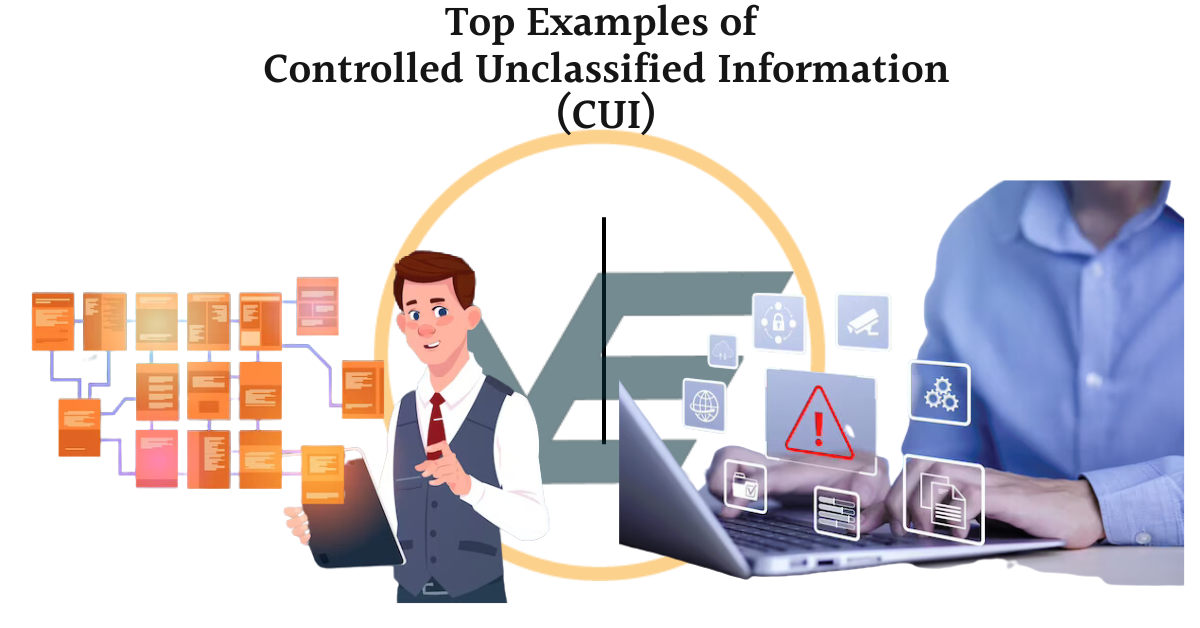Controlled Unclassified Information (CUI) refers to sensitive information that is not classified under the national security classification system but still requires safeguarding and protection from unauthorized disclosure. CUI encompasses various types of information that, if disclosed, could potentially harm national security, individual privacy, or the interests of the government and its partners. Here are some examples of Controlled Unclassified Information (CUI):

11 Examples of CUI
- Personally Identifiable Information (PII): This includes data that can be used to identify individuals, such as Social Security numbers, dates of birth, addresses, and medical records.
- Law Enforcement Sensitive (LES) Information: Information that, while not classified, is sensitive in nature and related to law enforcement activities, investigations, or intelligence gathering.
- Sensitive but Unclassified (SBU) Information: This category includes various types of sensitive information that do not meet the criteria for classification but still require protection, such as critical infrastructure data or sensitive financial information.
- Export-Controlled Information: Information related to items or technologies subject to export controls, regulated by the U.S. Department of Commerce or other agencies.
- For Official Use Only (FOUO) Information: Information intended for internal government use only and not for public dissemination.
- Protected Health Information (PHI): Health-related information protected under the Health Insurance Portability and Accountability Act (HIPAA).
- Intellectual Property: Proprietary information, trade secrets, and other intellectual property that require protection from unauthorized disclosure.
- Sensitive Security Information (SSI): Information related to transportation security, regulated by the Transportation Security Administration (TSA).
- Critical Infrastructure Information (CII): Information pertaining to critical infrastructure systems and assets that require protection from potential threats.
- Contract Sensitive Unclassified Information (CSUI): Information exchanged under government contracts that requires safeguarding to protect contract interests and performance.
- Unclassified Controlled Nuclear Information (UCNI): Information related to nuclear technology and activities, subject to strict controls.
It’s important to note that the examples mentioned above may vary depending on the specific policies and regulations of different organizations and government agencies. Proper handling and protection of Controlled Unclassified Information are essential to maintain national security, privacy, and the integrity of sensitive data.

